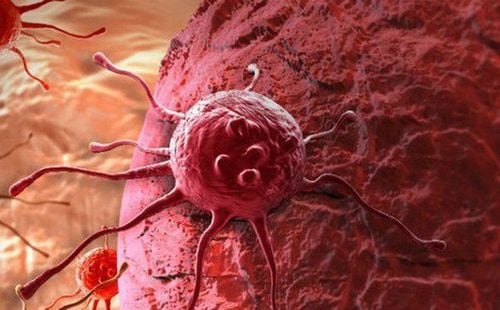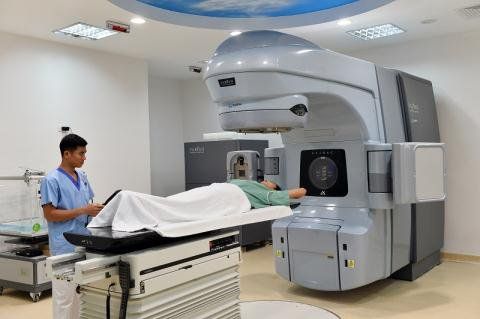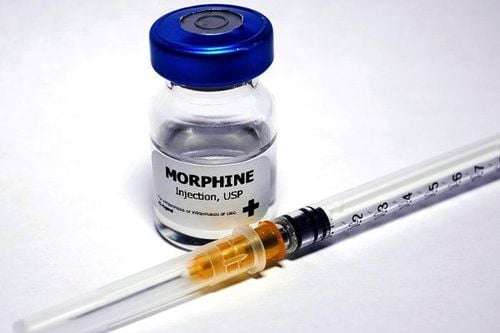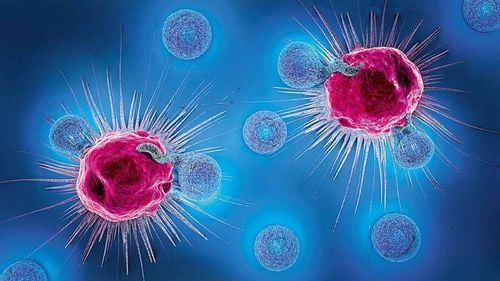This is an automatically translated article.
The article is expertly consulted by Dr. Nong Ngoc Son - Doctor of Chemotherapy and Palliative Treatment - Oncology Center - Vinmec Central Park International General Hospital.In cancer treatment, determining the stages of cancer is an extremely necessary step, so that we can easily assess the progression and severity of the disease, support the plan. treatment and prolong the life of the patient.
1. The stage of cancer determines the treatment
The best treatment plan depends on the type and stage of the cancer. Many treatment guidelines and length of treatment will be based on the specific stage of the cancer. The order in which treatments, such as chemotherapy, radiation, or surgery, are given, may also depend on the stage of the cancer.The stage helps describe where the cancer is located, where it has spread, and whether it has affected other parts of the body. Doctors often use diagnostic tests to determine the stage of cancer. Knowing the stage helps the doctor:
Make a treatment plan, choose the right types of treatment for the patient including surgery, chemotherapy or radiation. Predict the chances of recovery Make a specific diagnosis of the disease Determine an effective treatment Compare the effectiveness of new treatments between people with the same diagnosis To determine the stage of the cancer , the doctor will use the TNM system - a staging system with the following factors:
T (tumor): Indicates the size and location of the tumor. T with numbers from 0-4, the size of the tumor is measured in cm. N (Nodes): Called lymph nodes, determine whether cancer has spread to nearby lymph nodes and how far it has spread. M (Metastasis): That is distant metastasis, indicating that the cancer has spread to other parts of the body such as liver, lungs, bones, brain.
2. Cancer stage helps predict chances of recovery

Cancer staging is a way to group cases together and predict response to treatment. It can also help predict whether the cancer will grow, spread, or return after treatment.
Most cancers have four stages: Stage I (1) to IV (4). Some cancers also have stage 0:
Stage 0: The early stage where the cancer is still very small and has not spread to nearby tissues. This stage of cancer is often highly curable, by removing the entire tumor with surgery. Stage I: This stage is usually a small tumor or tumor that has not grown deep into nearby tissues. It has also not spread to the lymph nodes or other parts of the body. This is early stage cancer. Stages II and III: In general, these 2 stages indicate that the cancer or larger tumor has grown deeper into nearby tissue. They may also have spread to the lymph nodes but have not spread to other parts of the body. Stage IV: This stage means the cancer has spread to other organs or parts of the body. It is called advanced or metastatic stage cancer.
3. Cancer stage sets future expectations
Cancer is a scary word, but not all cancers and cancer stages are the same. Knowing your cancer stage is one way to better predict and prepare for the challenges ahead. A cancer stage is like a roadmap based on the footsteps of previous patients with cancer at a similar stage.4. Cancer staging helps determine the right tests
Patients with different stages of cancer will be suitable for different tests. Therefore, based on the stage of cancer, the doctor will help the doctor to prescribe the appropriate test for the patient to support the diagnosis and treatment of the disease.5. Support testing new therapy
Thanks to the staging of the disease, it is possible to compare the effectiveness of new cancer therapies between patients with the same stage. As our understanding of cancer is evolving, new therapeutic trials are the turning point in making cancer treatment more effective.Efforts to accompany Cancer patients in Vietnam, Vinmec International General Hospital has invested in building a modern Oncology Department according to international standards, using a multi-specialty approach model in diagnosis, choosing the right treatment regimen for each patient, contributing to comprehensive patient care.

Oncology Department at Vinmec International Hospital system is fully equipped with cancer treatment models: From surgery, radiation therapy, chemotherapy, pain treatment and post-treatment care. The diagnosis is made carefully: blood test, X-ray, ultrasound, magnetic resonance imaging, myelogram, myelogram, biopsy, immunohistochemistry, biological diagnosis molecule. The treatment process is closely coordinated with many specialties: Center for Diagnostic Imaging, Laboratory Testing, Cardiology, Department of Obstetrics and Gynecology, Department of Endocrinology, Department of Rehabilitation, Department of Psychology, Department of Nutrition Nursing Department, Pain Treatment Department to bring to patients the optimal treatment regimen and the most reasonable cost.
Radiation Oncology Center - Vinmec Times City (Hanoi): Customers can go directly to Vinmec Times City for examination or contact hotline 0243 9743 556 for support.
Oncology Center - Vinmec Central Park (HCMC): Doctor Nong Ngoc Son has many years of experience in directly treating cancer patients, especially in the field of chemotherapy, late stage cancers have moved etiology, and end-of-life patients.
Please dial HOTLINE for more information or register for an appointment HERE. Download MyVinmec app to make appointments faster and to manage your bookings easily.
Article referenced source: Cancer.net













